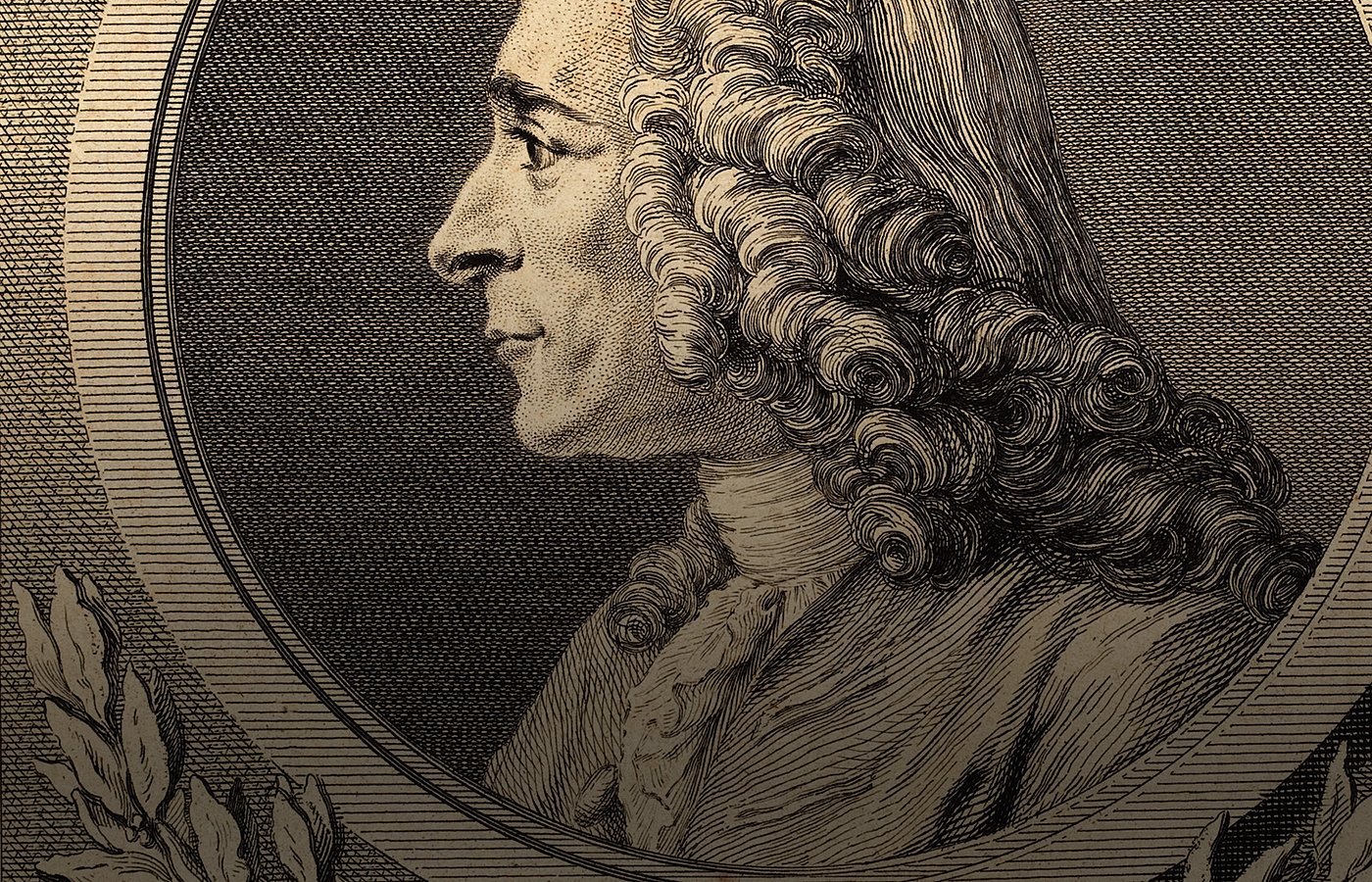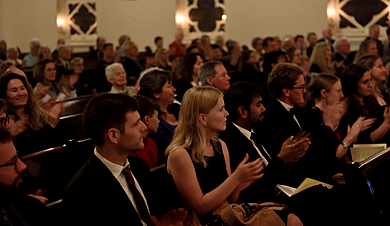
Alan Charles Kors on Voltaire's 'Philosophical Letters'
- Past Event
- Dates
-
Past Event
April 21 & 28 at 1pm EDT | 6pm BST - Location
- Zoom Webinar
Alan Charles Kors on Voltaire's 'Philosophical Letters'
Alan Charles Kors on Voltaire: A Two-Part Lecture
Part 1: Bringing English Thought to France (April 21)
Profoundly impressed by the English scientific and philosophical revolutions of the seventeenth century, Voltaire sought to explain and to popularize new British thinking to his French readers in one of his most influential works, the Philosophical Letters. He argued that sound and innovative thinkers were more important to humanity than its political or military heroes and that preferring the philosophers of one’s native land over those of another nation was a barrier to truth and knowledge. He was respectful toward René Descartes, who was beloved among the new philosophers in France, but he praised and promoted as superior the English empirical tradition, above all the work of Francis Bacon, John Locke, and Isaac Newton.
Voltaire's discussion of Locke and Newton propagated the view that natural philosophy was limited in its claims to what could be known from experience alone, urging the abatement of metaphysical pretensions. In Voltaire’s view, Locke and Newton had achieved wonders in the realm of knowledge by approaching their work empirically and with intellectual modesty, and he was determined to explain Newton’s achievement to his countrymen. Discussing the English practice of inoculation against smallpox, Voltaire offered a model of how knowledge gained from experience could be applied to reduce the suffering of the human condition, a model that would dominate Enlightenment thinking.
Reading: Voltaire, Philosophical Letters, with emphasis on Letters 11-17. The recommended edition is the Hackett edition, which is widely available in both print and digital formats.
Part II: The English Lesson for France: Religious Toleration and Restraint of Power (April 28)
Voltaire introduced his readers to an idealized England of religious pluralism and tolerance, balanced government, fair taxation, commercial energy, and the triumph of the secular over the sectarian. His portraits of all the major religions in England celebrated whatever seemed more tolerant, fair, and decent than the contrasting behaviors of the eighteenth-century French Catholic Church. He likewise praised the commercial activity and prosperity of England, linking it to the greater religious tolerance and fewer aristocratic values of Britain as opposed to France. He conceded that the building blocks of liberty in England had emerged from rivalries among elites eager to despoil the common people, but he presented an England that had succeeded in achieving a liberty unknown in France by limiting and dividing power, and he urged that such liberty was a cornerstone of British well-being.
In the course of the Philosophical Letters, the narrator's initially circumspect voice became increasingly assertive and self-confident as he contrasted—ever more explicitly—a religiously intolerant, aristocratic, and excessively traditionalist France with a commercial, politically free, and religiously tolerant England. In some chapters, he attempted nothing less than a reevaluation of what was important to a progressive and free human life.
Reading: Philosophical Letters, with emphasis on Letters 1-10.
About the Speaker
Alan Charles Kors is the Henry Charles Lea Professor Emeritus of the University of Pennsylvania’s History Department, and one of the foremost living authorities on the European Enlightenment. A specialist in European intellectual history of the seventeenth and eighteenth centuries, he has made the relationship between orthodox and heterodox thought in France after 1650 a special focus of his scholarship. His two latest works—Naturalism and Disbelief in France, 1650–1729 and Epicureans and Atheists in France, 1650-1729 which both appeared in 2016—complete a trilogy on the diverse origins of early-modern atheism in that country which began with the publication of Atheism in France, 1650-1729: The Orthodox Sources of Disbelief in 1990. He was also the editor-in-chief of the 4-volume Encyclopedia of the Enlightenment, published by Oxford University Press in 2002. In addition to wide-ranging contributions to his own field, Dr Kors has been a tireless defender of academic freedom as well and is a co-founder of FIRE, the Foundation for Individual Rights in Education. For his pathbreaking scholarship and his advocacy on this issue, he has earned several national awards, including, in 2005, the National Humanities Medal.
People
Humanities
MA
MA
Spend a year in dialogue with life's most searching questions in an open-minded community in Greece and then beautiful Savannah.

SUPPORT A NEW BEGINNING
Education and conversation free from censorship, cynicism, and corruption matter. Ralston College is a place for them to happen, for human flourishing and building anew.



